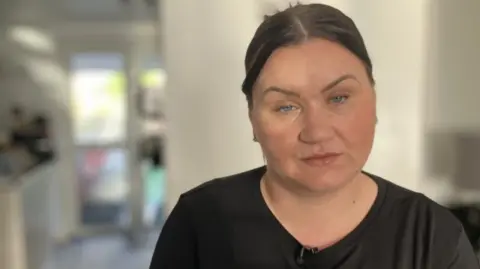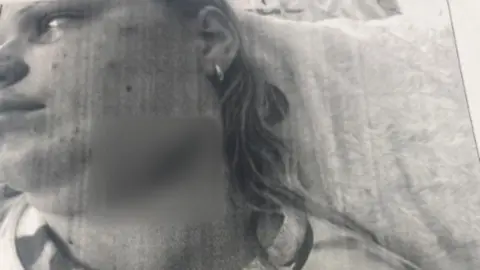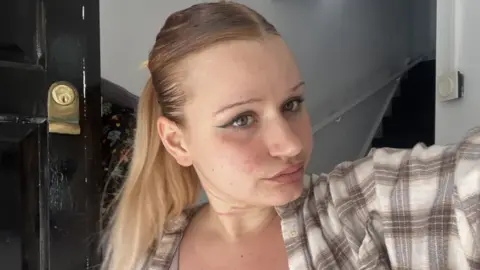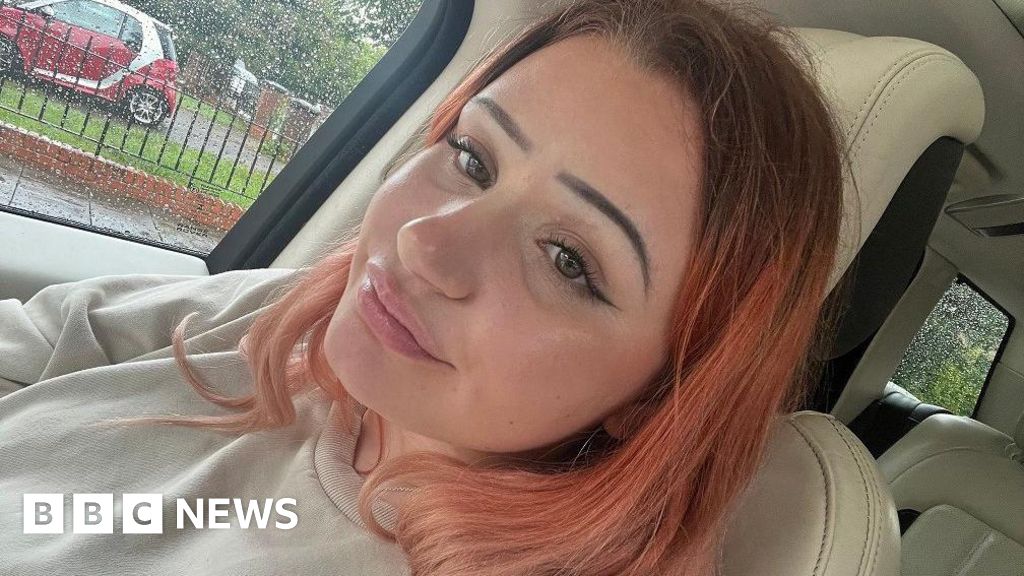Matthew Hill,Health Correspondent and
Sarah Turnnidge,Bristol
 Supplied
Supplied
Lauren Roe, 19, took her own life after being deemed suitable to be discharged to supported living
Warning: This article contains descriptions and images of self harm and suicide.
The mother of a teenager who took her own life while under the care of mental health services believes “significant failings” led to her death.
Lauren Roe, 19, from Bristol, died on 6 September after being assessed as suitable for discharge to supported living by the Avon and Wiltshire Mental Health Partnership NHS Trust (AWP) – despite months of repeated attempts to take her own life.
Mother Michelle Roe said: “This significant failing led to my daughter losing her life, rather than [receiving] the help she wanted and deserved.”
AWP’s leaders said they are “committed to addressing concerns or areas for further learning”.
They added that they would “participate fully in any wider reviews into the circumstances of Lauren’s death”.

Ms Roe claims indications Lauren was planning to seriously harm herself were “ignored”
At the time of her death, Lauren was living in a Bristol City Council-funded assisted living placement in a wooden cabin on an industrial estate, run by providers New Futures Support.
Lauren had been under the care of the trust since she was 15, and while she had struggled to get a “proper diagnosis” due to her age, she had shown symptoms of bipolar disorder.
The transition from child to adult mental health services under the care of the council’s Young Adults Transitions Service also proved difficult, her mother told the BBC.
In May she was sectioned in Southmead Hospital’s Mason Unit under the Mental Health Act after being forcibly removed from a motorway bridge by police, but released just hours later.
Ms Roe, 37, said both she and Lauren’s father had been surprised to hear she was deemed to have capacity, adding: “Not only could she have killed herself, she could have killed a lot of people down below her.”
Over the summer she made a number of further attempts on her life – seriously self-harming and taking dangerous combinations of drugs and other substances.
 Supplied
Supplied
In August Lauren nearly died after wounding her throat, the BBC has blurred the photo, but her mother was keen to share it to reflect just how serious her situation was
Throughout this time, Ms Roe said she had contacted New Futures to tell them her daughter appeared to be suffering from severe psychotic episodes, writing disturbing messages on her bedroom walls and keeping a detailed diary of her emotions.
One of the last entries, which began “dear God”, she asked for help to take her own life.
Ms Roe said: “It is clear the surrounding of her room [wall writings], twinned with her acts of life-threatening injuries were ignored.”
On 12 August, Lauren hurt herself so badly it required emergency surgery, but her mother told us she was again sent home with no further support as Lauren was considered to have capacity to make decisions for herself.
Less than a month later, on 6 September, Lauren was found dead in her bedroom.
After Lauren’s death Ms Roe received a letter from New Futures telling her an internal review had been carried out and explaining that staff were on hand to assist with day to day living and facilitate access to external services like mental health professionals.
However the letter went on to say “our role is not as a medical provider, and there are limitations to the interventions we can directly offer, especially in acute clinical situations”.

An inquest into Lauren’s death is likely to take place next year
The letter also said concerns were “documented and escalated” when they arose, but that risk could not be “entirely eliminated despite our best efforts”.
In an email to the BBC, New Futures confirmed that Lauren was not on suicide watch during her placement, but added it was “deeply committed to the safety and welfare of all those” in its care.
It added that the team “devoted themselves” to Lauren’s “safety and wellbeing”, and that her placement had been decided by the council.
Council leaders have formally referred the matter to the Keeping Bristol Safe Partnership Board, which they said they have done to ensure a “thorough and transparent review process”.
A council sub-group will decide on 8 December if a safeguarding review into Lauren’s death should be carried out.
Hugh Evans, the council’s director for adult social care, said: “Our priority is to approach this with the utmost care and diligence, keeping the needs of Lauren’s family at the forefront throughout.”
An inquest into Lauren’s death is likely to take place next year.
If you have been affected by the content in this article, support and information can be found on the BBC’s Action Line.

